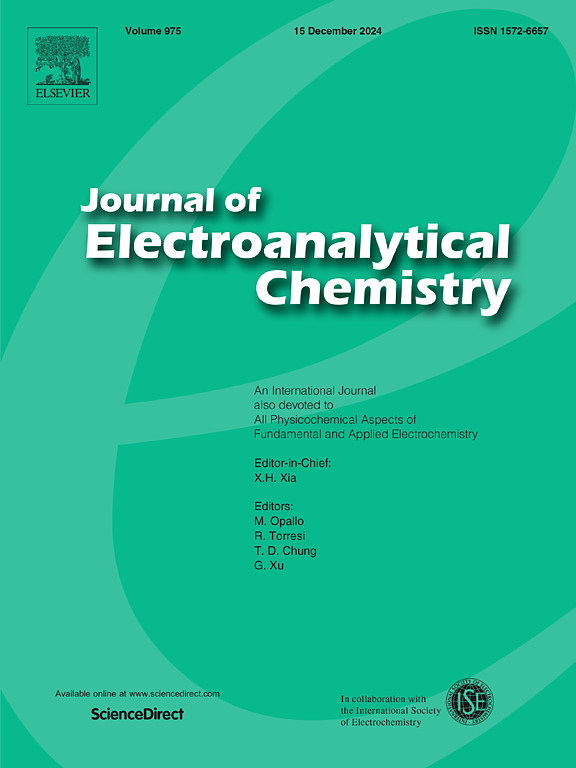Insight into organic electrolytes for rechargeable Zn-air battery
IF 4.1
3区 化学
Q1 CHEMISTRY, ANALYTICAL
引用次数: 0
Abstract
In rechargeable zinc-air batteries (RZABs) use of aqueous electrolytes is prevalent, but this approach introduces several challenges, such as hydrogen evolution, lower electrochemical stability window, corrosion and passivation of the Zn electrodes. In this regard, the suitability of zinc organic electrolytes is explored to resolve the technical challenges associated with the aqueous electrolytes. In order to address the current challenges and research gaps, suitability of the addressed zinc organic electrolytes was investigated through analyzing their – physicochemical properties and mass transport; compositional analyses (decomposition screening), formed discharge product and reversibility during redox kinetics; corrosion and passivation phenomena of zinc metal as well as the cathodic oxygen reduction reaction (ORR) performance. Notably, this study is the first to investigate the passivation and corrosion phenomena of Zn metal anodes in organic electrolytes, establishing the correlation between cathodic ORR activity and electrolyte medium, and the decomposition process of organic electrolytes in air environment through saturating the electrolyte medium with dissolved oxygen. The study revealed that zinc triflate/DMF (Dimethylformamide) organic electrolyte has excellent reversibility, charge and mass transport, ORR activity, and minimum passivation than the zinc nitrate/DMF and zinc nitrate/DMSO (Dimethylsufoxide) organic electrolytes.
求助全文
约1分钟内获得全文
求助全文
来源期刊
CiteScore
7.80
自引率
6.70%
发文量
912
审稿时长
2.4 months
期刊介绍:
The Journal of Electroanalytical Chemistry is the foremost international journal devoted to the interdisciplinary subject of electrochemistry in all its aspects, theoretical as well as applied.
Electrochemistry is a wide ranging area that is in a state of continuous evolution. Rather than compiling a long list of topics covered by the Journal, the editors would like to draw particular attention to the key issues of novelty, topicality and quality. Papers should present new and interesting electrochemical science in a way that is accessible to the reader. The presentation and discussion should be at a level that is consistent with the international status of the Journal. Reports describing the application of well-established techniques to problems that are essentially technical will not be accepted. Similarly, papers that report observations but fail to provide adequate interpretation will be rejected by the Editors. Papers dealing with technical electrochemistry should be submitted to other specialist journals unless the authors can show that their work provides substantially new insights into electrochemical processes.

 求助内容:
求助内容: 应助结果提醒方式:
应助结果提醒方式:


